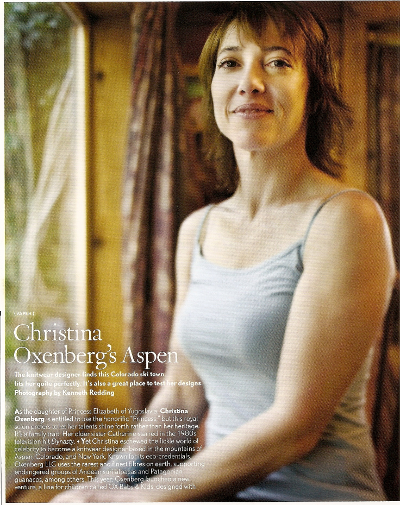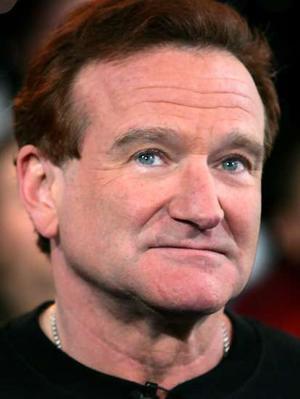
"Thirty years ago, Michael Kinsley, then with The New Republic, sought to prove his theory that few of Washington’s elites actually read the highfalutin best sellers that they dutifully buy and profess to admire. At a local bookstore, he slipped a note with his phone number deep into the pages of hot new books by the likes of the foreign-policy hand Strobe Talbott and the political pundit Ben Wattenberg, promising a $5 reward to anyone who read that far. Kinsley reported that no one called. In the digital age, we have the technology to address this same question on a national scale. This summer, a University of Wisconsin mathematician, Jordan Ellenberg, created a small stir by inventing what he called the “Hawking Index” in honor of Stephen Hawking’s much-praised, if not necessarily much-read, A Brief History of Time. Using Amazon’s posted lists of the top five “popular highlights” in books notated by Kindle readers—and the page numbers those highlights fall on—Ellenberg crafted a quasi-scientific formula to compute how thoroughly best sellers were being consumed. At the high end by far was Donna Tartt’s novel The Goldfinch, which scored an anomalous 98.5 percent on the Hawking Index. Among nonfiction books, Michael Lewis’s Flash Boys was a leader, at 21.7 percent. At the bottom, breaking Hawking’s previous low (6.6 percent), was the most-written-about best seller of the year, Thomas Piketty’s Capital in the Twenty-First Century, at 2.4 percent. It didn’t take long for a wiseass at the Washington Post to note that another best seller fell still lower than Piketty on the Hawking scale, at 2.04 percent: Hillary Clinton’s Hard Choices. It has been an unexpectedly hard summer for Hard Choices—and, by implication, for its author. The book had a dream rollout worthy of J. K. Rowling: a prime-time ABC special with Diane Sawyer, Good Morning America with Robin Roberts, a CNN town hall with Christiane Amanpour, Jane Pauley on CBS, The Daily Show, online Q&As at Facebook and Twitter, even a respectful interview with Greta Van Susteren and Bret Baier at Fox News. But the book tour was stalked by controversies—Clinton’s tone-deaf complaint about being “dead broke” after leaving the White House in 2001, her fumbled answers to questions about her astronomical speaking fees. And much of the press was unkind to Hard Choices itself. You know a Clinton book is in trouble when one of its few partisans is a Fox News personality—Van Susteren, who called it 'a fun read.' John Dickerson of Slate spoke for many of those hardy few who actually read the book from cover to cover when he described it as “the low-salt, low-fat, low-calorie offering with vanilla pudding as the dessert.” The only news in Hard Choices was not to be found in its 656-page ocean of prose but in the subtext. Despite Clinton’s disingenuous claim in the epilogue about 2016 (“I haven’t decided yet”), no one in her right mind would write a fat book this dull, this unrevealing, and this innocuous unless she were running for president." (Frank Rich/NYMag)

"At a time when Europe and other parts of the world are governed by forgettable mediocrities, Recep Tayyip Erdogan, Turkey's prime minister for a decade now, seethes with ambition. Perhaps the only other leader of a major world nation who emanates such a dynamic force field around him is Russia's Vladimir Putin, with whom the West is also supremely uncomfortable. Erdogan and Putin are ambitious because they are men who unrepentantly grasp geopolitics. Putin knows that any responsible Russian leader ensures that Russia has buffer zones of some sort in places like Eastern Europe and the Caucasus; Erdogan knows that Turkey must become a substantial power in the Near East in order to give him leverage in Europe. Erdogan's problem is that Turkey's geography between East and West contains as many vulnerabilities as it does benefits. This makes Erdogan at times overreach. But there is a historical and geographical logic to his excesses.The story begins after World War I ... Erdogan now realizes that projecting Turkey's moderate Muslim power throughout the Middle East is fraught with frustrating complexities. Indeed, it is unclear that Turkey even has the political and military capacity to actualize such a vision. To wit, Turkey may be trying its best to increase trade with its eastern neighbors, but it still does not come close to Turkey's large trade volumes with Europe, now mired in recession. In the Caucasus and Central Asia, Turkey demands influence based on geographic and linguistic affinity. Yet Putin's Russia continues to exert significant influence in the Central Asian states and, through its invasion and subsequent political maneuverings in Georgia, has put Azerbaijan in an extremely uncomfortable position. In Mesopotamia, Turkey's influence is simply unequal to that of far more proximate Iran. In Syria, Erdogan and his foreign minister, Ahmet Davutoglu, thought -- incorrectly, it turns out -- that they could effectively mold a moderate Islamist Sunni opposition to replace President Bashar al Assad's Alawite regime. And while Erdogan has gained points throughout the Islamic world for his rousing opposition to Israel, he has learned that this comes at a price: the warming of relations between Israel and both Greece and the Greek part of Cyprus, which now permits Turkey's adversaries in the Eastern Mediterranean to cooperate in the hydrocarbon field.The root of the problem is partly geographic. Turkey constitutes a bastion of mountains and plateau, inhabiting the half-island of the Anatolian land bridge between the Balkans and the Middle East. It is plainly not integral to a place like Iraq, for example, in the way that Iran is; and its Turkic language no longer enjoys the benefit of the Arabic script, which might give it more cultural leverage elsewhere in the Levant. But most important, Turkey is itself bedeviled by its own Kurdish population, complicating its attempts to exert leverage in neighboring Middle Eastern states. Turkey's southeast is demographically dominated by ethnic Kurds, who adjoin vast Kurdish regions in Syria, Iraq and Iran. The ongoing breakup of Syria potentially liberates Kurds there to join with radical Kurds in Anatolia in order to undermine Turkey." (STRATFOR)

"Already Serbia seems like a dream, sensations mutating. The only thing I know for certain is I shall return. But I had to be at a wedding far up the north eastern United States, so everything was temporarily on hold. I am finally returned to Key West, now one week later, and I feel and look like Shackleton, post Pole. This was the wedding of Bobby Kennedy Jr and actress Cheryl Hines. All about f...amily and friends.The Kennedys and I have a history too conspiratorial to get into here and now. What I will say is that in the case of Bobby Kennedy Jr, the third child of RFK and Ethel, we have a tradition of attending each other's weddings. As a non-breeder myself I long-ago bequeathed my carbon footprint allowance to Bobby Kennedy Jr and he has been prolific. His six children I consider honorary nieces and nephews. It is natural to try and put a finger on the pulse of where traits come from. According to one tree I am a direct descendent of Genghis Khan to which I'll say, I come in peace. When I first met some of the Kennedys I saw a lot of myself in them. I am fearless loud quick empathetic and fiercely loyal. I saw myself in them, I saw myself in strangers, I even one time met a cat with whom I had a lot in common. But you know what they say, people look like their dogs, so one can find commonality wherever one chooses to look. Then I went to Serbia and the puzzle fell into place." (Christina Oxenberg)

"As the world mourns the shocking loss of Robin Williams, details continue to emerge about the comedy icon’s recent struggles with money and addiction. 'All he could talk about were serious money troubles,' a family friend who recently spoke with Williams told Radar Online. 'There were clearly other issues going on and Robin sounded distant during the telephone conversation.' Williams opened up about his money problems in a Parade magazine interview last year in which he mentioned how hard it was to deal with divorce. 'Divorce is expensive,' Williams said. 'It’s ripping your heart through your wallet.'" (P6)
 |
Sen. Rand Paul chatting with Richard Johnson
|
"This past Saturday night, the East Hampton Library held its 10th Annual Authors Night Benefit under a huge tent at the Gardiner Farm on James Lane in East Hampton where over 1,000 attendees had the opportunity to meet the authors, purchase their books and have them personally inscribed. Unlike most public libraries, East Hampton Library is funded primarily by private donations rather than taxpayer money, so this night truly will benefit the community. That is the reason so many acclaimed authors participate. The evening then continued as some of the authors discussed their books at dinner parties held in private homes throughout the Hamptons. Authors Night began in 2005 as a small fundraising event with a handful of authors and has now grown over the last 10 years to become one of the most successful celebrations of books and authors in America. The evening’s Founding Co-Chairs Alec Baldwin and Barbara Goldsmith were joined by 2014 Honorary Co-Chairs Robert A. Caro, Giada DeLaurentiis, Nelson DeMille, Lee Grant, Alice McDermott, and James McBride. Among the authors participating were: Giada De Laurentiis, James McBride, Robert A. Caro, Nelson DeMille, Lee Grant, Dick Cavett, Jennifer Esposito, Aerin Lauder, Joe Pintauro, Lynn Sherr, Jessica Soffer, Allison Pataki, Florence Fabricant, Mary Emmerling, Alice Harris, Martha Rogers and many many more.After the Authors Book Signing Cocktail Reception, select guests had dinner at their choice of private home of 23 Hamptons notables, including Dina Merrill and Ted Hartley, Jo Carole and Ronald Lauder, Mort Zuckerman and Jane Friedman. " (NYSD)

No comments:
Post a Comment